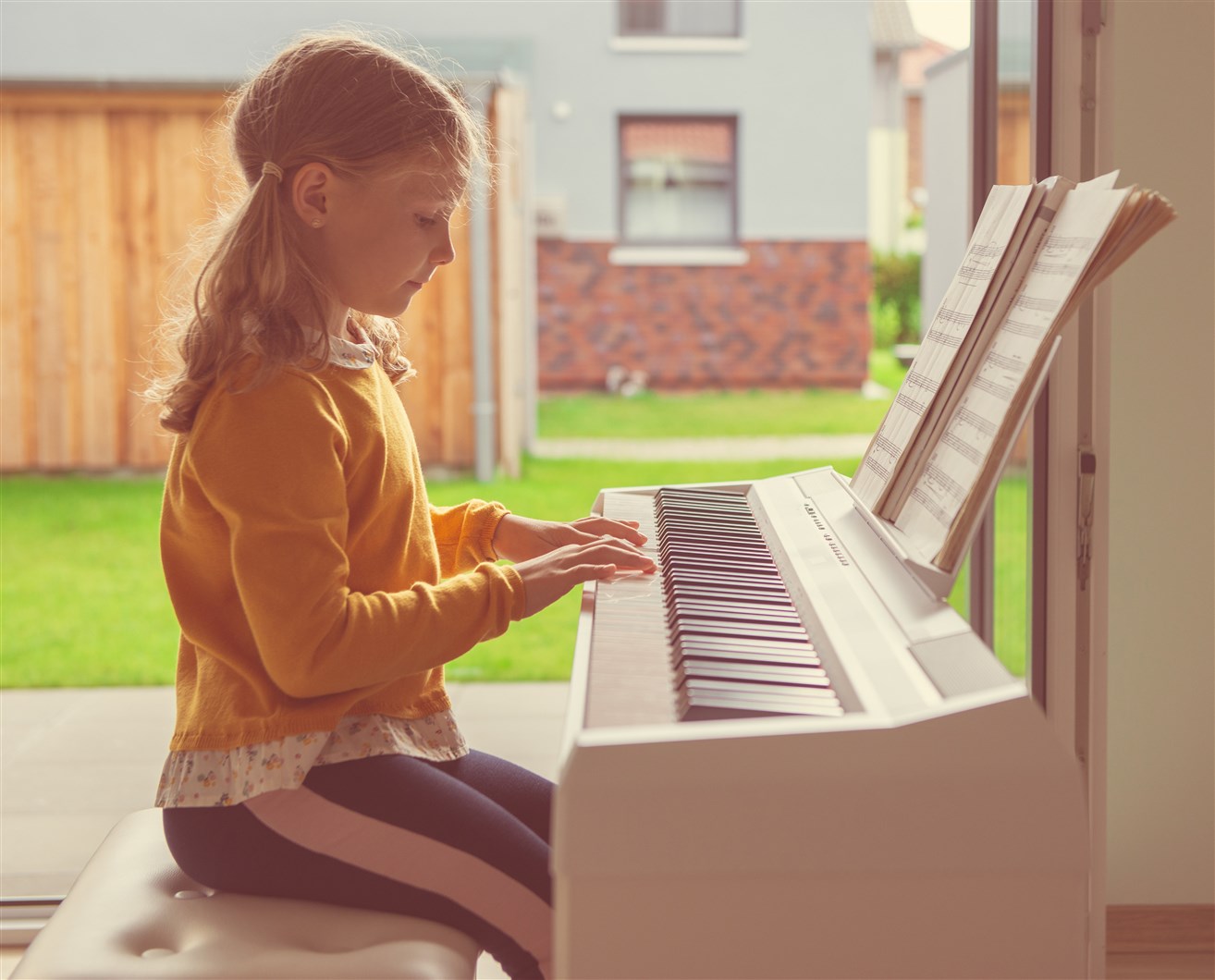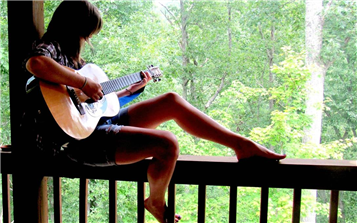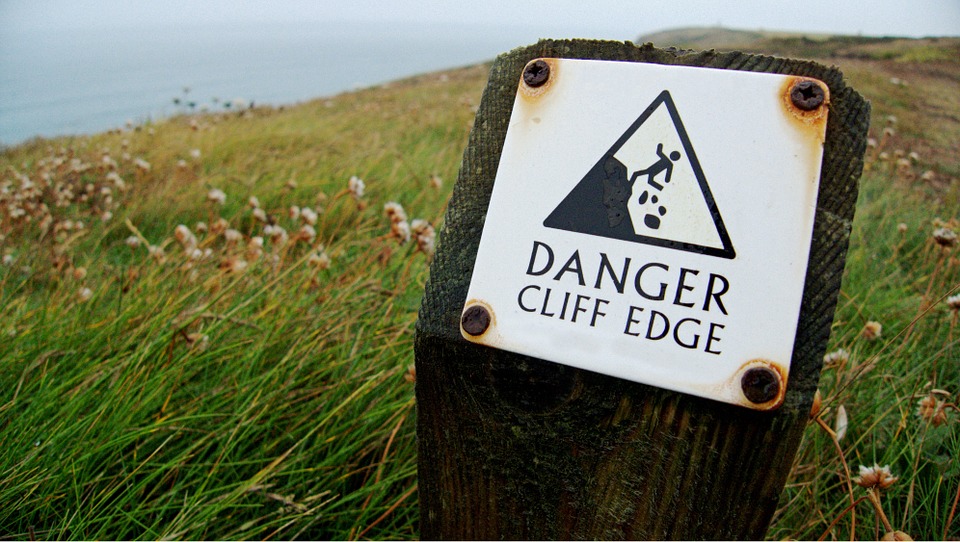|
Muse’s blog and magazine articles probe the burning music questions on everyone’s mind!
|
Mastery vs Perfection: Which is the Smarter Pursuit?
Saturday, October 16, 2021 by Cara Walsh Dorman | Universal Wisdom
Nobody’s perfect.
One of the first figures of speech we learn is that one. When defending a minor error (or sarcastically dismissing a major catastrophe) people rely on this unsophisticated but succinct expression. As imperfect beings, we universally get it. Misshpelled word? No big deal. Messed up punchline? Oh well.
Often, we can simply shrug off imperfections. It’s the times when it really counts that perfection becomes paramount. In school, a missed question on the test drops your score. In sports, a missed goal does the same. But if we’re talking about a “50% of your grade” test, or a championship game, the stakes are high and the consequences of too many errors can be devastating.
Much as we like the theory of “nobody’s perfect” all of us secretly crave perfection and sometimes need to at least attempt it to bring about the best possible outcome. So how can we hope to achieve a nearly flawless performance, especially when it truly matters?
In a word, mastery.
Mastery is the real name of the game when it comes to learning new skills and improving on existing ones. It is imperative for reaching goals while staving off errors. Mastery is also a far better bet for success than the desperate hope for perfection.
In music lessons, my students and I spend hours mastering tasks large and small. We work to grasp the artistic scope of a piece so we can play with appropriate, unwavering execution straight through. We break down technical elements to infinitesimal bits to learn to perform a tricky maneuver the moment it occurs in the music. To perform a song, a series of chords, or a technical exercise with utter deftness, mastery of the different components is crucial.
Throughout the process of grappling with all this complexity, I continuously remind students that the steps we are taking are necessary for gaining mastery of their music, but many students suspect that perfection is what I expect, and I frequently get accused of just that. Typical scenario: Jacob stumbles 5 times on his song before finally playing it “perfectly” on the 6th try, but then can’t replicate his “perfect” performance the 7th time or beyond. Jacob hasn’t yet achieved mastery, so I reassign the song for the next week with specific instructions for improvement.
At this moment, I am also preparing for an earful from Jacob. Like many of my students, Jacob is not shy in voicing his grievances about how unrealistic it is to require absolutely no errors before he is able to move on. The protests hit some serious decibels after that ONE TIME (out of 7 or more) that he DID get it perfect, and it’s not fair that I don’t let him pass!
Contrary to what students think, perfection IS sometimes the result of mastery, but it's not the aim of our practice. While it’s true I hold students to a pretty high standard, this is often misinterpreted as requiring perfection. In reality I am only guiding students toward mastery, and that fact usually needs repeated clarification.
To reassure students that we truly are on a different mission than the impossible goal of 0% error, we must explore the question: what exactly is mastery and how is it different from perfection? Mastery is the pursuit of proficiency. Mastery takes focus, patience, and perseverance. It yields reliable skill which enables you to perform with accuracy and confidence. Perfection on the other hand, though regarded as a by-product of mastery, often relies too much on pure and simple luck.
If a beginning golfer hits a hole in one, this perceived perfect stroke is obviously sheer luck. Chances are he can’t even make par on subsequent holes. A master may not hit a perfect hole in one ever, but will consistently win tournaments due to his many hours of practice to achieve the necessary skill. Perfection is elusive in this way, where mastery is dependable. Perfection is also conditional: if weather was never a factor, a capable golfer could easily send the ball with high accuracy to wherever he chose. But what sensible player would ever bet on zero wind in every game?
What about the figure skater? If the rink appears perfect, but an invisible chink in the ice is lurking just where she is about to take off, she may not realize until the last second that she will be badly misaligned for her jump. It is only her level of mastery that will allow her to maintain her form or manage to correct her body in the air. Where perfection fails, mastery rescues!
Mistakes and unplanned circumstances happen and we just can’t always pull off perfection. And sooner or later, all humans realize we simply can’t count on nothing going wrong. Mastery is what's required for all the variables life throws at us. Perfection is an ideal, mastery is a practice. Perfection requires the absence of error, mastery provides the prevention of it as well as the recovery when needed.
I could go on (just ask my students!), but suffice it to say that mastery is crafted from experience and is the nobler (as well as more useful) quest to embark upon. In your journey toward mastery, you can dispense with that old worn out “nobody’s perfect!” because it will be irrelevant as you increase your odds for perfection far beyond what luck would afford you.
And think of it this way—what would you rather be called: Master or Perfectionist? I know my choice!
Music All Summer Long
Sunday, April 25, 2021 by Cara Walsh Dorman | Summer Music
IS IT SUMMER? LET MUSIC FILL THE AIR!
There it is, that familiar Alaskan awakening hitting us all right now; our every fiber collectively shouting “Summer, here we come!” When the Arctic’s most dynamic and invigorating season descends, it ignites every type of creative expression and Alaska gets fully underway with ALL things art! That includes a bounty of music found at the many seasonal markets and outdoor events held during Alaska's glorious warmer months. For those of us with a musical affinity, it's this part--the music-- that we have most eagerly anticipated!
But with gathering opportunities still scaled down this summer, there need be no shortage of music! How’s that? By making your own!
As a lifelong musician, my absolute favorite place to enjoy music during the long days of summer was at my own piano. If I wanted to be outside, I'd head to my porch swing with a guitar and notebook. If I wanted to socialize and play, I'd pack up some musical odds and ends, meet up pretty much anywhere with a few friends and we'd pass around the shakers, bongos and other various noise-makers for hours of entertainment under the midnight sun.
Summers of music are a consistent theme from childhood right up through my college years and on into adulthood. A typical kid, I spent much of any given summer day playing outside, but usually found myself drawn to the family piano at some point when I needed a different type of diversion. There was a ritual to it: I’d start with whatever required the least effort to pick up and play. First, I’d run through my standard rotation of memorized songs—some from old music lesson assignments, some of my own creation. Next up, a little improv session to expand or elaborate on some unfinished bits and pieces of tunes I’d been toying with of late. At the point I finally needed a little outside inspiration from some other source, I’d eventually crack a songbook and plop it on the piano rack.
I’d commence with one of the most current pop or movie music collections I’d managed to coerce my mom into buying from the local music store. Without lessons available in summer at my small town teacher’s studio, I’d stumble through on my own as best I could, getting the basic idea here, mangling some rhythms there, but generally keeping amused. When I tired of that, I’d haul out method book repertoire. This is when I’d go into full-fledged concert mode for whoever happened to be in earshot at home. I’d play what I considered the greatest hits of each of the various-leveled books in descending order of difficulty, from most recently mastered selections down through the basic primer level ditties. If there was room in any song for embellishment, I embellished. If the song lent itself to complete reinvention, I spared no detail in making it my own reworked masterpiece.
I would easily lose a few hours on these wide-ranging musical excursions before wandering back outside, or being hustled out the door to gymnastics, swim class, or grandma’s house on the lake. Summer was certainly busy with my family’s seasonal business and three kids’ revolving camps and sports. And in those early days of home computers and video game consoles, we were a modern family whose kids heeded the siren call to go battle each other on whichever game we were obsessing over. Still, summer was my most musically productive time, and when I felt most free to explore and create.
Around mid-July, I would start feeling a little anxious and bored at the piano after realizing I’d only hit the half-way mark of the long 3-month wait to get more direction from my teacher. In my tiny community, music teachers typically aligned lessons with the school year and even though I did play consistently during those in-between months, I always felt like the task of getting my brain up and running again after such a long stretch away from the rigor of lessons was a monumental one that I rather dreaded.
Years later when I’d started teaching piano, it dawned on me that many of us hold an oddly contrary notion about when we should be learning music. Though the opportunities abound in the summer months to enjoy concerts, take in impromptu performances on street corners, and (see above) BYO instruments on any and all outdoor excursions, it just doesn't square to equate music studies with school studies. Instead, what has proved out in my own experience as a student as well as a teacher, is that there are no seasonal limitations on the musical mind. Turns out, the human brain remains artistically curious and explorative no matter the time of year!
It stands to reason that those of my students who continue actively attending lessons throughout the summer maintain their skills far better and progress steadily apace year round. An easy half-hour weekly lesson commitment with a flexible independent practice schedule is very manageable and low maintenance, but helps cultivate my students’ ability to ultimately take their places among those musicians around campfires, in back yards, and eventually performing on stages at those festive summer events! They find this much more rewarding than setting aside their instrument for a long season's nap while the skills they worked so hard to master grow rusty.
The take away? When you’re out there frolicking in the last frontier and looking for opportunities to be engaged and creative this summer, don’t overlook the obvious— pick up that instrument and let the music play on! And if you don't yet know how, there's no time like these long Alaskan summer days to kick your learning into high gear. By this time next year, you'll be that much closer to center stage!
New Tricks: Adult Music Students
Thursday, January 21, 2021 by Cara Walsh Dorman | Adult Learners

“You’re never too old to learn something new” is a proverb that must have been inspired by adult music beginners. Every adult who boldly enrolls in music lessons gives credence to this encouraging chestnut. Whether they come to a music education with lofty or modest goals, I have found no beginning adult music student who couldn’t start up and get the basics down just as well as any kid. With time and a comparable amount of practice, adults show that they can in fact learn at least as fast as kids, sometimes faster!
Adults come in different varieties, however, and this does factor into the process. Those who begin lessons as complete newbies are always excited to start blazing their musical trail. These clean slates usually only need some affirmation that learning an instrument will be fun, of course, but challenging as well. Other adults, however, have a past. They may be battle scarred from prior attempts to learn, and may harbor doubts planted decades before. These adults feel compelled to give a laundry list of their perceived personal shortcomings and potential obstacles to learning to play an instrument. They believe (or have been told) that they have no rhythm, are tone-deaf, can’t even attempt to read music, etc.
After a full recounting to me of struggles and trauma they remember from first musical efforts, these adults confide that they secretly wonder if it’s all true—that they may be the single unmusical soul who won’t be able to learn, and starting now is an exercise in futility. These poor souls are extra susceptible to two tragic misconceptions that will ultimately thwart their efforts and only serve to confirm fears of ineptitude in the adult beginner: that a higher power has predetermined who can and can’t play music, or that adults can’t escape a major handicap in that their learning abilities have long since expired.
The good news is, regardless of personal musical history or any pesky, pervasive mythology, these fears have no merit. On the contrary, it is absolutely, unquestionably, indisputably possible for adults to simply put in the practice time and ultimately become completely capable players. In fact, adults are uniquely equipped to learn more comprehensively than children due to reaching the status of adulthood.
What are these adult advantages?
For starters, adults have a lifetime of listening to music and a vast exposure to a variety of musical styles. This comes from just being on the planet awhile! We attend performances, watch movies, shop in stores, ride in elevators, and hang out with people of differing musical tastes. We absorb and accumulate music day in and day out over the years, which forms an ever-expanding database of sounds and styles that we can draw on as music students.
A related advantage is adults’ broader appreciation of different musical styles from all those years of listening, allowing them to more easily enjoy learning songs from genres they may not count among their favorites, but don’t necessarily reject based on differing taste. A diversity of music helps with managing the basic facets of musicianship whether it be traditional folk songs with simple melodies, patriotic songs with simple rhythms, or contemplative spirituals with wide-ranging dynamics. Adults, more so than kids, can appreciate what each song will contribute to their cache of abilities.
Another useful adult attribute is patience which translates to infinitely more productive practice. Patience for working on small and large tasks is a most critical part of learning thoroughly, allowing the student to get beyond a rudimentary grasp of the material. In the same vein, adults can concentrate longer and absorb more. During lesson time, they can pick up on the finer points and glean more detail from instruction. And adults are more willing to implement into their own practice these finer points and practice suggestions that teachers are more than happy to impart.
Adults are very experienced learners, having already been schooled and coached in multiple disciplines. They more faithfully follow instructions. They ask questions when concepts are unclear, admit confusion or frustration, and can communicate troubles more easily. They more easily suspend skepticism when given advice that a particular drill or exercise truly will pay off, understanding that these are parts of a whole when it comes to learning songs, and that those bits and pieces will effectively provide the building blocks of the very music they want to learn.
Adults understand what it is to work toward larger goals, but as kids, may have had a harder time seeing the “bigger picture”. Adults get that how they choose to spend their time and what they prioritize will help them hit milestones in their pursuits. Their skills in time management prove to be a great benefit in this way since the demands of life require that adults spend each hour wisely, and practice time is regarded as more precious and will consistently be more quality intensive.
Adults realize that an art requires some sophistication and familiarity with the abstract, whereas kids just don’t have the capacity yet. Adults can relate lessons they’ve learned in life to what they encounter in music lessons. They care about context and nuance. They take an interest in stylistic norms of an era or a composer’s character quirks. They can identify with song lyrics!
There are also the physical advantages. Adult-sized hands and bodies, feet that reach the floor, strength, coordination, muscle dexterity, stamina: all of these attributes come after the awkward years of developing into full maturity.
Feeling good about your hard-won adult super powers yet?
Adults should be heartened to find out that age does not diminish their capability in the least when it comes to learning music! From what I know of students 4 years old to 72 (total beginners at both ends of the spectrum!), the hard-won merits of adulthood yield a wealth of wisdom and aptitude that serve as great resources. What you put in is what you get out, no matter your age, but if you have the added perks of being an adult, you can wield the richness of your experience as your greatest asset.
The Zen of Music Practice
Wednesday, September 30, 2020 by Cara Walsh Dorman | Healthy Music

It seems to be common knowledge these days that music practice is incredibly good for you. People marvel at the amazing benefits they hear and read about, and indeed, the list is impressive and wide-ranging. The usual attention-grabbers are: it improves math and other STEM skills, aids in language and auditory development, trains hand-eye coordination, imparts discipline and dedication, staves of age-related mental decline...it truly goes on and on!
Music is an all-in-one powerhouse of valuable attributes. You could do numerous, separate tasks in the categories listed above in order to make progress in each, but it’s hard to deny how attractive it is to have a single way in which to achieve simultaneous, overall improvement. One-stop shopping, after all, is the ultimate convenience we Alaskans who frequent Freddy’s can all attest to! What’s more, you reap the touted rewards through just the act of focused, goal-centered practice with the intention to continually improve upon skills while learning an art. Those rewards aren’t contingent on pursuing the highest levels of virtuosity with the aim to become a world-class performer; the benefits will come regardless.
Thousands of studies have confirmed the many ways in which music helps people become better thinkers, and the evidence supplies endless reasons for anybody wondering whether taking up an instrument will pay off. There are extensive sources that can provide further detail, and a quick Google search will give you all the insight and reading on the topic you can handle—no need for another lap on well-trod ground here.
But there is another area that doesn’t get quite as much of the spotlight when up against heavy contenders such as helping to grasp geometry and edging up I.Q. The special and unique way in which music provides respite and ritual could be considered music’s greatest gift to the practicer. This is the sheer “om” factor of making music.
Soothing yet productive, music practice provides a type of stress relief that speaks to our souls while it entertains our spirit. It requires enough brain power so as to distract the mind away from everyday stressors while replacing the noisy chatter with perfectly ordered sound. In a society that increasingly exacts more time, energy, and effort from us mere mortals, music promises to refill our cups and help us transcend the melee of the pedestrian world.
How does this work? Consider first that stopping to spend some time practicing music can feel like actually “Stopping Time”. The pacing and the aligning effect of music gives the sense of an actual pause of the world. A curious mind matched with a melody to develop or some chords to improvise with can take one down a rabbit hole where time and space become relative, and an unveiled labyrinthine landscape of sound and motion can only be navigated by equal parts imagination and music theory. Not to get all metaphysical, but you truly do get lost in the creation of music to the point that it’s as if you have been transported, but after which you get the perk of feeling centered and revitalized, post-excursion.
How can all this lofty mumbo jumbo help people?
Let’s start with the chaos of adulthood. The escalating pace of society along with the demands of our personal and professional lives leave our heads spinning, and we need to hit reset every so often. Adults, as often as kids, can easily fall victim to the minefield of devices and screens that do nothing for true spiritual restoration while they also threaten to blow up all productivity should we plan to tackle a few more items on the to-do list when “me-time” is over. Want to put down the smartphone and do something for yourself, despite realistically only being able to afford 20-30 minutes for a total rebalance of mind, body, and soul? You’re in luck: the music benefit cornucopia cascades forth its riches in record time!
The moment you begin to play, beat and rhythm begin regulating your breathing and heart rate, equalizing your brainwaves, and even boosting your immunity! Should you choose to tinker with something slow and contemplative, or up-tempo and jazzy, you will begin to resonate with the particular vibration signature, your body’s 65% water content conducting the sound waves throughout your organs and limbs. If you involve singing (no matter your ability), you can really supercharge the coupled meditative aspects and health benefits due to the increased oxygenation of your blood, boosted lung capacity, and strengthening of your core and diaphragm, all of which are accompanied by a release of endorphins. Together, these effects create a similar outcome of cardiovascular exercise, conscious breathing, and other mental clarity exercises, all-in-one style. Habitual multi-taskers, rejoice!
Now, what about kids? Besides music’s ability to make kids scholastically competitive, there are positive physiological effects for them as well. The life of a typical school-age child involves managing homework loads, standardized testing, tutoring, social issues, and extra-curricula. With so much pressure to juggle and excel in everything, the long days can get pretty rough and exhausting. Having a readily accessible refuge (other than a digital escape) is a welcome way for kids to get a breather.
Still, we know all too well the insistent pull of the video game and the difficulty in prying all manner of flashing screens from the hands of kids during any downtime. Conveniently, practicing music provides stimulation and requires problem solving in an engaging, recreational medium—just like those infamous games! Creating their own music presents challenges to kids, but allows for multiple solutions. Conversely, pre-written songs require kids to puzzle out each new level of complexity with exactness. Once mastery is achieved, those skills are applied to the next more intricately composed song, similar to the process of leveling-up in a game. Unlike with video games, kids can easily slip out of music practice and back into the normal groove. And as a bonus, there are lasting cognitive effects that carry over to the next task you take up—a reason I often suggest my students take a homework break and insert their music practice. When they return to the books, they are refreshed and refocused. Win-win!
Can’t you just download an app (or apps) for all this? Nope, not this powerful. And to prove my point in the event that practicing music seems a quaint throwback in comparison to our many hypnotic games and sophisticated biofeedback of our mind/body-awareness app’s, just take note of what you’re hearing when you launch many of these games and apps. Is it original music written specially to enhance the activity on the screen, by chance? Probably. Does the cool theme in the background make you want to learn to play it? Naturally! No matter how fancy the graphics, the sounds and the music draw you deeply into that state of flow, illustrating how connected we are to music and how it can create an elevated, meditative, zen state.
Find your own musical haven apart from the everyday clamor, and begin reaping the unique, meditative rewards that only music practice can bestow!
QUITTER'S CLIFF: Advice for Avoiding a Dreaded Fate
Tuesday, September 1, 2020 by Cara Walsh Dorman | Staying the Course
 In my line of work, a specific confession is routinely offered up when someone finds out I’m a music teacher: “When I was a kid I didn’t practice.” I can see the guilty party getting ready to wince, almost expecting me to whip out a ruler at this admission. Without fail, what immediately follows is, “But I wish I would have stuck with it so that now I could really play!” That last part is usually said in total earnest and (I’m pretty sure) not just to escape the whack of the ruler.
In my line of work, a specific confession is routinely offered up when someone finds out I’m a music teacher: “When I was a kid I didn’t practice.” I can see the guilty party getting ready to wince, almost expecting me to whip out a ruler at this admission. Without fail, what immediately follows is, “But I wish I would have stuck with it so that now I could really play!” That last part is usually said in total earnest and (I’m pretty sure) not just to escape the whack of the ruler.
The specter of the missed opportunity to become a good player haunts many “ex”-music students. Those who gave up their instrument will readily admit not having the discipline to have kept up on practice, yet seem to honestly regret the fateful--and maybe premature-- decision to quit altogether.
Truth is, there are dozens of obstacles a music student will encounter on the journey that threaten to imperil their enthusiasm for music practice. New activities, seasonal sports, and social events often get prioritized for the short or long-term and will disrupt music studies. School work and family life, both of which must take precedence over all else during certain periods, can end up having unintended consequences on a student’s practice regimen. One week’s faltering leads to resisting parents’ urges to “please go practice”, and not long after comes the fatal blow of a resounding, “I quit!” The tragic scenario plays out again, and as their parents did before them, another generation of children falls to their music education demise, the end.
But is it really fated? Is your child destined to be swept into the abyss as well? Naturally, I’m going to say “no” in the same breath as I say “but”, and that’s because it is necessary to be informed about potential pitfalls that lie in the path of the music student which can derail practice and lead to straight to that cliff.
What could cause your kid’s dedication to waver? Here are two common culprits.
A biggie these days is overscheduling. Kids are expected to pack a lot of productivity into their days and the sheer number of hours already spoken for can leave little time and energy for music. If your child has a standard school day and homework load, plus a single activity/sport involving 3-5 weekly practices in addition to games, meets, etc. a significant portion of their time is already dedicated. Family commitments, time for friends, and downtime must be factored in as well. If your kid is overbooked, the first thing to go is almost always music practice.
Conversely, some kids have the time but aren’t the best at managing it. While school hours and sports practices occur at preset times, music practice does not. Interestingly, the solution for both the too-busy and the too-distracted is to independently preset time for music practice. I provide both a practice planner and a tracker at the outset of lessons to handle this task. Outside of the weekly 30 to 60-minute lesson, most teachers recommend 20-45 minutes of daily practice with a day or two off. I require a minimum 5 days’ practice and usually tell kids to front-load the practice week according to when the lesson occurs for best retention. This translates to practicing at least the first 3 days after the lesson before taking a day off, then getting two more practices in.
Sometimes a simple solution is to let practicality win out, however, so I’ll recommend kids pinpoint the two busiest days in the week and plan for practice all other days. It doesn’t have to be complicated to be effective!
Kids do need to have some brainpower and alertness for quality practice, so timing is key to make sure they have the energy for it. In other words, don’t leave it until nearly bedtime (unless you enjoy unwinding with your practice). One regular suggestion I make is to fit it in with homework: before, between, or after. Music requires mental focus, but is active as well. Doing practice just before homework can make for a natural segue into preparing to “hit the books”. Or for some kids, it works to make music practice a break between homework sessions. Kids find the activity of music practice refreshes them while keeping their brain “on” and able to return to homework. Music can go after homework as well. For kids who look forward to their time on the instrument, saving it for after homework is a satisfying and pleasant wrap up for the daily to-do list. But my strongest suggestion for planning practice? Experiment! Be open to trying out one time for a while, then switching it up if it’s not working.
Another HUGE detriment to music practice (for any age student, but particularly for kids) is inconsistent lesson attendance. We’re not talking about the occasional sickness, or important and unavoidable school obligation. This pertains more to blowing off lessons just a little too often. By the same token, routinely coming late cuts into lesson time so that little gets accomplished and starts to have a cumulative effect on motivation and morale. Lesson time is precious and we try to cram an entire week’s material into 30 short minutes. Missing a lesson means a student doesn’t get feedback or help for half a month! Whether a kid is anxious to pass a nearly completed song, or is totally stalled out in some cryptic notation in measure 14, absolutely nothing torpedoes progress for a music student like chronically missing lessons.
The take away? You CAN break the cycle of abandoned musical pursuits! Plan your practice, get to your lessons, and keep at it! After all, I’ve never yet heard anyone say, “I wish I would have quit sooner so I wouldn’t have gotten as good as I did.” No one ever regrets continuing their music adventure!


